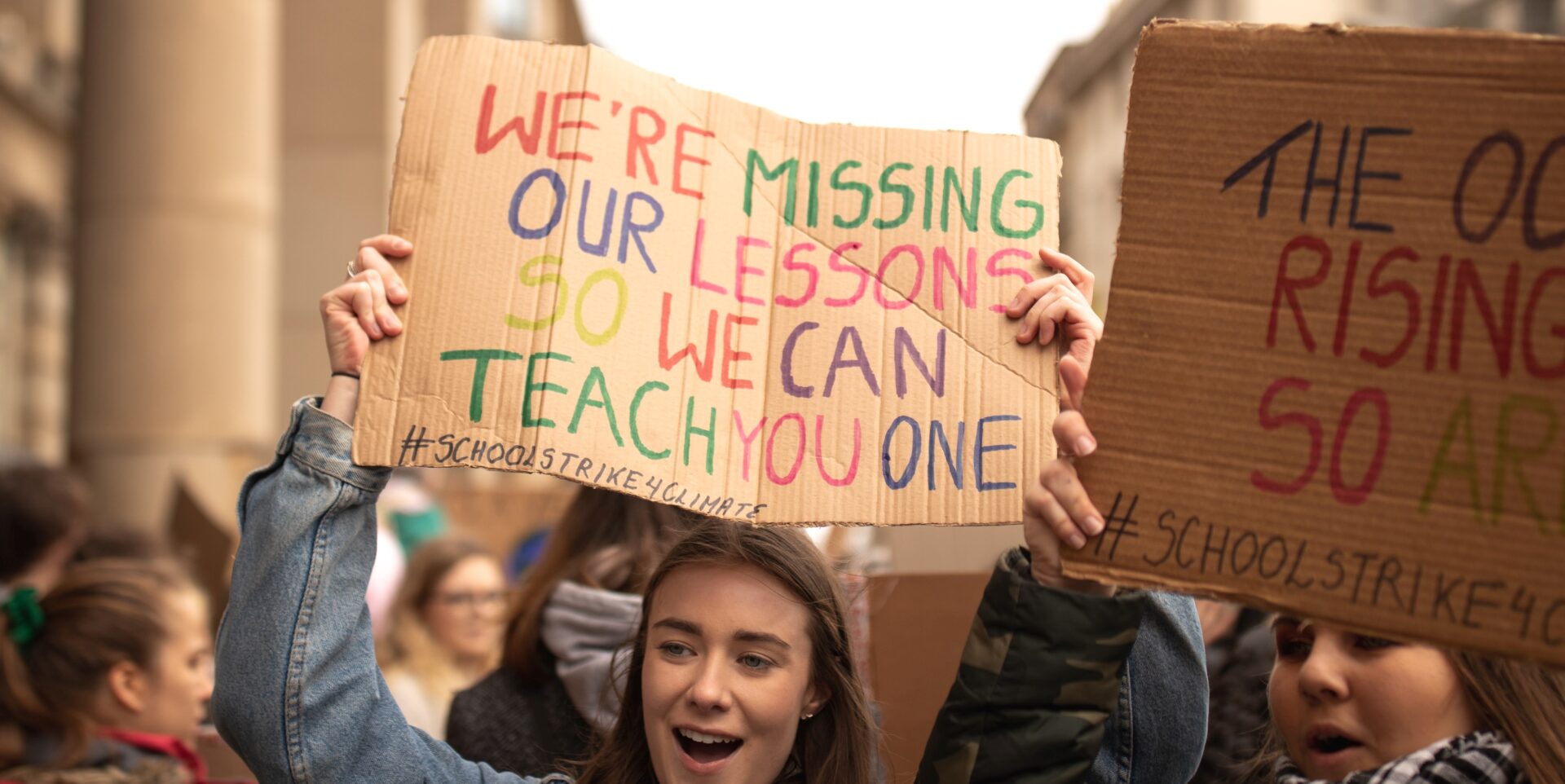
Despite misaligned career prospects, 50% of Gen Z students think their generation can have a high impact on tackling issues surrounding the environment and climate change...
Gen Z’s career prospects don’t match their sustainable values
When it comes to deciding upon a career, almost three in four (74%) Gen Z students (16-23 year olds) place the greatest importance on pay, followed by doing something they are interested in (64%) and enjoyment (63%). In contrast, only one in six (15%) place the greatest importance on improving environmental sustainability/tackling climate change. Likely due to the cost of living, with students prioritising financial stability whilst also being unaware of the green job opportunities available to them.
The most important sectors in helping the UK reach its net-zero emissions targets, according to students, are Utilities (24%), Transport (13%), and Agriculture, Forestry, and Fishing (11%). However, over a third (34%) would not pursue a career in Agriculture, Forestry, and Fishing, and another fifth (22%) would not consider a career in either Utilities or Transport.
Perhaps more worryingly, just under two-fifths (37%) of students would not consider a career in Construction yet nearly a sixth (14%) say it is the most important sector in helping the UK reach its net-zero emissions targets.
A missed opportunity in our education system
Despite misaligned career prospects, 50% of Gen Z students think their generation can have a high impact on tackling issues surrounding the environment and climate change, with 87% concerned about the impact of climate change on the world.
Yet when it comes to their education, there are some notable gaps in understanding sustainability. When asked about their understanding of green jobs (employment that directly contributes to – or indirectly supports – the achievement of the UK’s net-zero emissions target and other environmental goals), just two-fifths (39%) say they are confident, whilst only a fifth (22%) feel informed about the range of green jobs available to them. In addition, only a fifth (23%) say they are confident in their understanding of green skills (the skills needed to support the development and growth of green jobs).
Gen Z are proactively learning about sustainability
Most notably, there is an appetite amongst students to know more, with three-quarters (74%) agreeing that they would like or would have liked to have learnt more about climate, sustainability, and environment-related topics at school. Many students are turning to other sources outside of the school curriculum to enhance their understanding, with half relying on independent desk research (50%) and two-fifths (43%) garnering information from social media.
In recent years, schools have been making more of an effort to include sustainability-based topics in their curriculum, with 63% of 16-17-year-olds surveyed recalling being taught lessons on the above, compared to only 43% of 23+ year-olds. Additionally, a third (34%) of college students say they feel informed about the careers guidance available to them on green jobs compared to a quarter of university students.
In summary
Students’ growing concerns about climate change have created a greater demand for education on sustainability topics, and they are eager to learn more. However, the challenge is to transform this passion into career opportunities across various sectors, especially those that are less appealing or perceived as less lucrative.
By expanding and diversifying education on sustainability-related topics, and highlighting the potential of green jobs, the education sector can better prepare students to not only address the challenges of climate change but also create sustainable solutions and opportunities for their future careers. Such efforts will benefit not only the students but also society and the planet as a whole.





